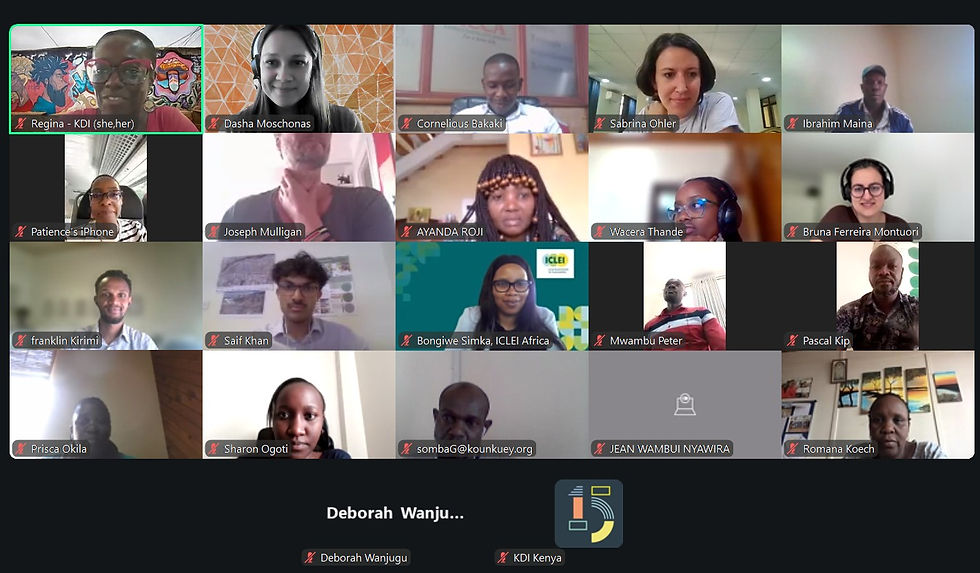Check-in – Focus group discussions on NBS projects
- Dec 8, 2020
- 1 min read
Updated: Apr 27, 2022
by Loe Guthmann
In informal settlements, landscape changes occur rapidly and frequently. This has an effect on nature-based solutions – they might not last as long as in the so-called “formal” city.
Monitoring, evaluation and learning, then, is key. A few weeks back, we conducted focus group discussions with residents in Kibera, Nairobi, and Vingunguti, Dar es Salaam.
What came out of them? We found that the implemented NBS not only provided numerous benefits, but also created heightened environmental awareness.
Co-design and understanding of NBS
As community members co-designed the NBS, they felt that the final result was exactly as they had anticipated. There was a general feeling among the communities that the active involvement in design and maintenance positively changed their relationship with urban nature. In some cases, residents even learnt how to build NBS themselves, using available materials to harvest and
recycle rainwater.
Performance of NBS
The main objective was to reduce flooding. The residents agreed that the NBS have been remarkably successful at achieving that, despite initial doubts and preferences for grey solutions. In addition, the value and attractiveness of the sites increased drastically. This led to a surge in economic activities and improved security. Other benefits named by community members included:
• Improved cleanliness
• Reduced air pollution
• More conducive environment for learning or living
• Hands-on skills through workshops
Admittedly, these benefits occur at a small scale. But we see potential for greater uptake. Ultimately, NBS should be connected across settlements to allow for better integration.




Comments